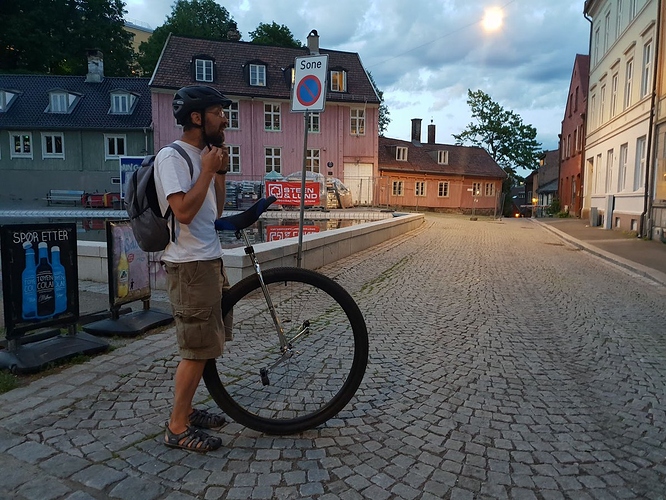A few weeks back I bought my first 36” wheeled unicycle, a UDC Trainer/Titan from UDC Sweden. I have been using it to commute to and from work a few times each week (just under 30 minutes each way). I have also been going out in the evenings to cycle around the neighbourhood and practice my control on a few of the steeper hills around. No off-read stuff, primarily smooth tarmac (ok, there is the odd pothole). I am guessing I have averaged between thirty minutes to an hour of cycling every day since I received it. So a fair bit of usage but not massive mileage, in the grand scheme of things.
Anyway, late yesterday evening I came back pretty late from meeting up with a friend and as it was quiet out and I was on an empty cycle path I noticed a sound on every rotation. Hard to describe exactly but somewhere between a click and a rub. It is not constant but I haven’t quite found the pattern for when it appears. It might be due to changes in road camber or when I am going downhill slightly and holding back the speed of the wheel with my legs.
My suspician is that it is coming from the spokes (given there isn’t many sources of noise on such a simple device, outside of a little tire roar). Is this something I should worry about? Do I need to fix something or adjust something to prevent breakage? Any thoughts or suggestions would be gladly received.
P.S. If it is spoke related, I have zero exprience changing or adjusting them but I also have no problem going to a bike shop and paying for them to make some adjustment. Though I do wonder if it was a problematic spoke (or spokes) if I would need to buy replacements first before I took it to a bike shop, given their unusually long length.
